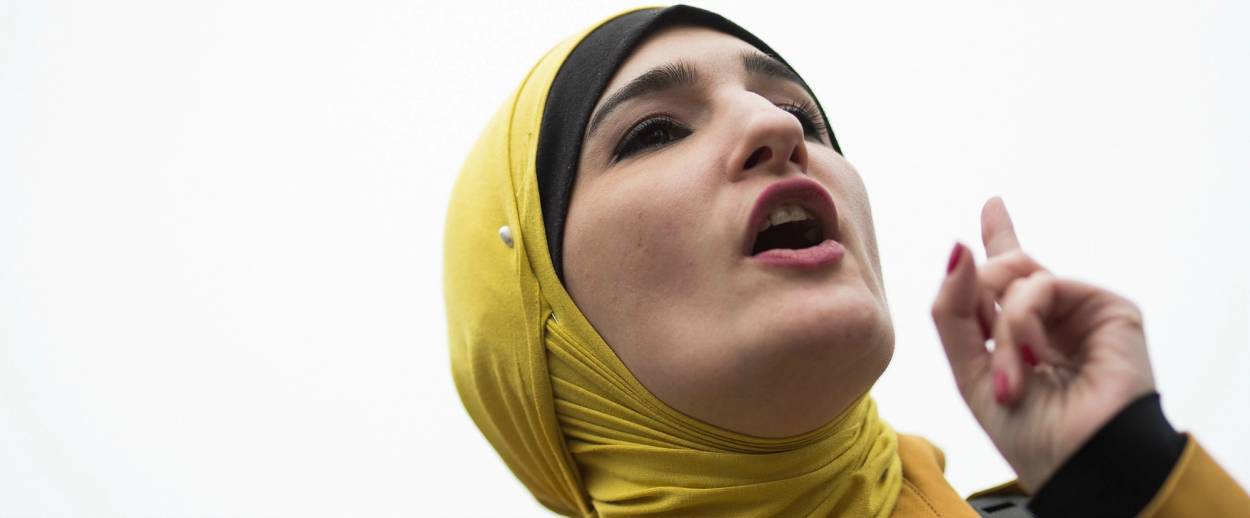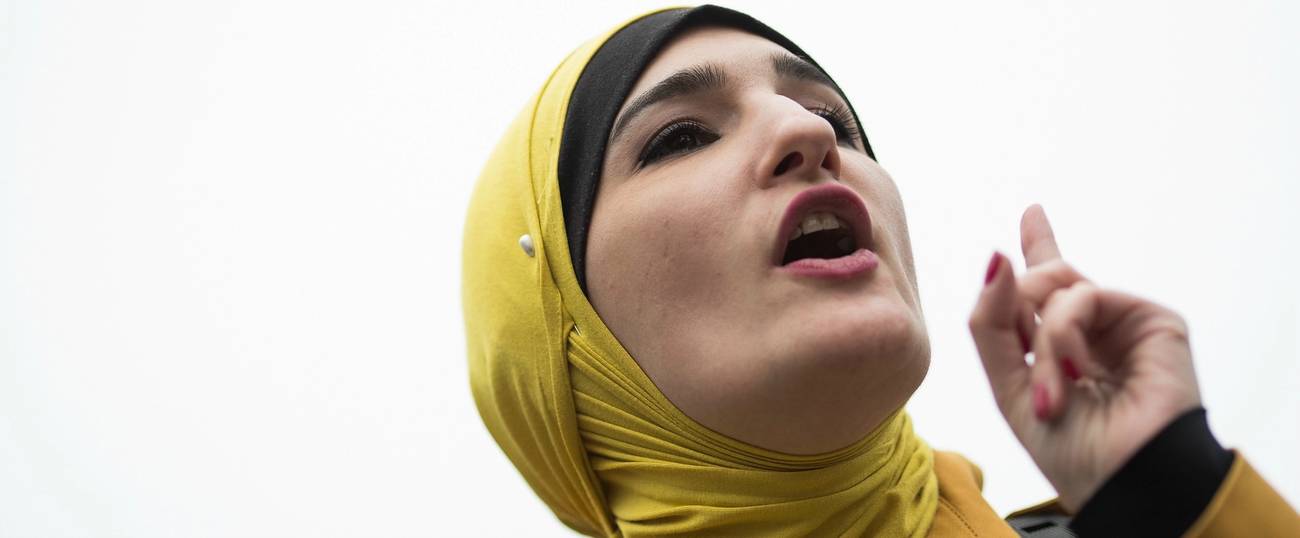Linda Sarsour’s Jihad
The activist version of Kathy Griffin meant to divide her audience while threatening Muslims who reject her extremism. She got away with it.




Did Linda Sarsour really call for jihad against Donald Trump? In a speech she delivered to the Islamic Society of North America last weekend, she said:
I hope that … when we stand up to those who oppress our communities, that Allah accepts from us that as a form of jihad, that we are struggling against tyrants and rulers not only abroad in the Middle East or on the other side of the world, but here in these United States of America, where you have fascists and white supremacists and Islamophobes reigning in the White House.
The results were predictable—and undoubtedly just as Sarsour had intended. Conservative writers jumped on her for declaring a “holy war” against the White House. Sarsour’s allies on the left, like Tablet contributor Matt Duss, defended her usage of “jihad,” explaining that it referenced a peaceful, interior struggle.
“For people to out of nowhere claim that I would be calling for some sort of violence against the president is absolutely ludicrous,” Sarsour told the Washington Post. “That’s just not who I am. That’s never been who I am.”
Indeed, Sarsour was no more calling for Trump’s death than Kathy Griffin was when she posed for a picture with a mask of the president’s decapitated head. And just like the comedienne, Sarsour wanted to have it both ways—get lots of attention for having done something sensational, and then play the role of victim when some of the attention invariably turned critical. What Sarsour did was raise the ante and the stakes—by putting it in the context of Arab political discourse.
Sarsour, a Palestinian-American activist, has become a very adept self-promoter. The former executive director of the Arab American Association of New York had little constituency even within the boundaries of her native Brooklyn. It was when Sarsour was named co-chair of the National Women’s March the day after President Donald Trump’s inaugural that she became a national figure regularly covered in the press, for actions good and bad.
She won applause from large segments of the Jewish community when she spearheaded a fund-rising drive to repair damage done to a Jewish cemetery in St. Louis. However, the controversy sparked by the City University of New York’s invitation to Sarsour to deliver the commencement address at its School of Public Health in June split the Jewish community and others into Sarsour defenders and critics. The latter noted her defense of the BDS movement and support for convicted Palestinian terrorist Rasmea Odeh, deported from the US for immigration fraud. And now Sarsour is giving speeches about jihad.
It represents one of the more significant tragedies of American foreign policy that the American press is still fighting over the correct definitions of a political and theological language that is alien to our own. It’s a reversal of the Bush administration’s project, which was to fix the Middle East by exporting American-style democracy. Rightly seeing the Freedom Agenda as a fool’s errand, the Obama White House wanted to distance itself from the region. But here we are, nearly 16 years after 9/11, long after editorialists spilled barrels of news ink citing verses from the Koran and other Islamic texts to show nascent Islamophobes that their Muslim neighbors are not murderers, and we are still skirmishing over the meaning of the word “jihad.”
The reality is that the debate over Islamic semantics has already been resolved—not in American newsrooms or the partisan halls of US politics, but on the killing fields of the Middle East. The people who are cutting each other’s heads off on both sides of the sectarian divide across Syria and Iraq, crucifying civilians, making sex slaves of women and children, and indulging in other inhuman depredations, have justified the murder of their co-religionists and others according to the logic of jihad. By all means, feel free to challenge that particular interpretation of the word, but at least have the decency to acknowledge your intervention comes in the context of nearly half a million dead.
And that’s the issue, less the word itself but the context, which is the source of the rhetoric used to justify the mass murder of other Arabs, as well as Americans and Israelis and, across Europe and Asia and elsewhere, Jews and Christians and Hindus, etc. Is it possible that Linda Sarsour really didn’t understand the particular resonances of the word employed in the context of American politics? Of course she knew. She could’ve delivered a standard Trump-hating speech about immigration and Islamophobia. But comparing an American president to the Middle Eastern tyrants and oppressors like Bashar al-Assad who murder children from the sky is what distinguished her.
She used the word “jihad” deliberately, in order to split her audience. Anyone who criticized her use of extremist language would be painted as a bigot alongside those who really are bigots. Those who defended her right to use extremist language would be dragged along with those who really are extremists.
It’s instructive that neither Sarsour’s critics nor defenders have noted what is perhaps the most toxic part of her speech. “You can count on me,” she told an audience of American Muslims, “to use my voice to stand up, not only to people outside our community who are repressing our communities, but those inside our communities who aid and abet the oppressors outside our community.”
Right, it’s a threat. If you don’t see things like she does, even if you’re Muslim, then you’re in for it— Linda Sarsour is watching. Linda Sarsour has your name.
But of course many Arabs and Muslims value our political system precisely because we are free from the political violence and coercion that has left the region in flames. We Americans, rather, regardless of race or religion, are left alone to make our own political choices—even if that means supporting Donald Trump. The last thing our political culture needs is someone like Linda Sarsour channeling the political energies of an Arab intelligence service and threatening Muslims and others to see it her way or else.
Sarsour’s speech marks a further degradation of American political discourse, which, as I’ve described here previously, has taken on a peculiarly Arab cast. It’s not enough to oppose Trump’s policies—no, instead it’s a “resistance,” mimicking the same reckless and ignorant energies that have made the last century of Middle Eastern politics a charnel house. Arab and Muslims have and will continue to make interesting and useful contributions to American life. Importing from the region the language and ethos of Middle Eastern political culture is not one of them.
Lee Smith is the author of The Permanent Coup: How Enemies Foreign and Domestic Targeted the American President (2020).